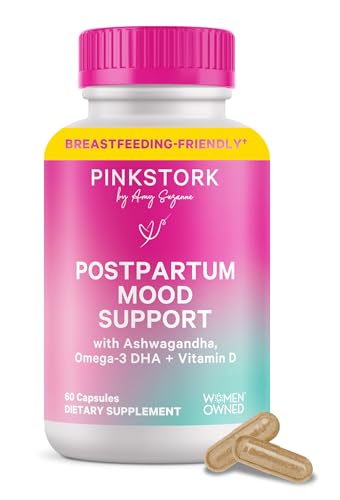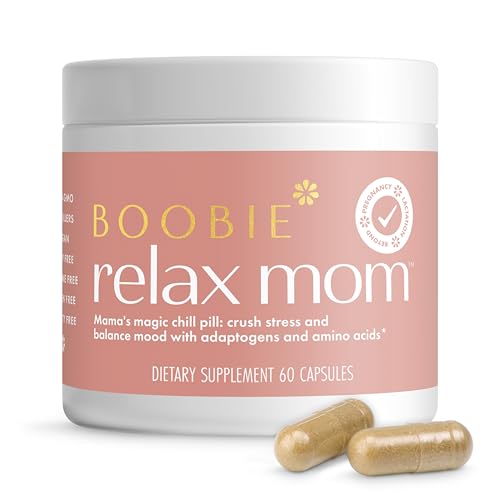Dealing with postpartum depression can feel overwhelming, but you’re not alone. Many moms experience feelings of exhaustion, disconnection, and guilt, even when your love for your baby is strong. Medications like antidepressants can help lift the fog and rebuild emotional stability, making bonding easier again. Combining medication with therapy, support groups, and self-care makes recovery smoother. Persistent effort and patience matter—trust that support is available, and a healthier postpartum life is within reach as you continue this journey.
Key Takeaways
- Recognize symptoms like emotional disconnect, exhaustion, and guilt to seek timely help.
- Consult healthcare providers about safe medication options to manage postpartum depression.
- Combine medication with therapy, support groups, and self-care for comprehensive recovery.
- Engage in bonding activities like skin-to-skin contact and gentle talking to reconnect with your baby.
- Be patient and persistent, understanding that healing takes time with proper support.

Postpartum depression can catch new mothers off guard, making it difficult to bond with your baby or enjoy the early days of motherhood. You might feel overwhelmed, exhausted, or disconnected, even when your baby is healthy and adorable. These bonding challenges aren’t a reflection of your love or dedication—they’re symptoms of postpartum depression, which can cloud your emotional state and make closeness feel impossible. You may find yourself avoiding eye contact, feeling guilty for not feeling the joy others rave about, or simply struggling to respond to your baby’s needs. Recognizing these feelings is the first step toward healing. Remember, you’re not alone, and help is available.
When it comes to addressing these bonding challenges, medication options can play a essential role. Many women find that antidepressants help lift the fog of postpartum depression, allowing them to reconnect with their feelings and their babies. These medications work by balancing brain chemicals that influence mood, making it easier to feel joy and attachment. It’s important to consult your healthcare provider to determine the best medication for your situation, especially since some antidepressants are safe to use while breastfeeding. Your doctor can weigh the benefits and potential side effects, helping you make an informed decision. Keep in mind, medication isn’t the only treatment; therapy, support groups, and self-care strategies are also indispensable components of recovery.
You might worry about medication affecting your baby or worry about dependency, but modern options are generally safe when prescribed and monitored properly. Many new mothers find that medication gives them the emotional stability they need to engage more fully with their child. Alongside medication, consider talking to a mental health professional who can help you develop coping skills and strategies to rebuild your bond. Simple acts like skin-to-skin contact, gentle talking, or even just holding your baby close can gradually improve your connection. It’s normal to feel hesitant or guilty about your emotions, but patience and persistence are key. Healing takes time, and with the right support, you’ll start to feel more like yourself. Additionally, understanding the contrast ratio of your environment can help create a calming space conducive to bonding, as lighting and visual clarity can influence emotional comfort.

Pink Stork Postpartum Mood Support – Postnatal Hormone Balance for Women – Breastfeeding Friendly – Stress & Cognitive Support, New Mom Essentials – Ashwagandha, Chamomile, & Vitamin D, 60 Capsules
Pink Stork Postpartum Wellness Support is carefully formulated to support your body's natural postpartum rhythm and promote emotional…
As an affiliate, we earn on qualifying purchases.
As an affiliate, we earn on qualifying purchases.
Frequently Asked Questions
Can Postpartum Depression Affect Fathers or Partners?
Postpartum depression can definitely affect fathers or partners, impacting their mental health and emotional well-being. As a partner, you might feel overwhelmed, anxious, or helpless while trying to support your loved one. Your paternal support becomes vital, but it can also take a toll on your own mental health. Recognizing these feelings and seeking help is essential to guarantee both your well-being and your ability to support each other during this challenging time.
What Are Early Signs of Postpartum Depression in New Moms?
You might notice early signs of postpartum depression, like persistent feelings of sadness, anxiety, or irritability that last beyond the baby blues, which usually fade within two weeks. Hormonal changes after birth can intensify these emotions. You may also feel overwhelmed, have trouble bonding with your baby, or lose interest in activities you once enjoyed. Recognizing these signs early helps you seek support and begin recovery.
How Can Friends and Family Support a Mother With Postpartum Depression?
Think of your support like a gentle lighthouse guiding her through stormy seas. You can offer emotional support by listening without judgment, showing understanding and patience. Practical help, like cooking meals or caring for the baby, eases her burdens and shows she’s not alone. Your presence, kindness, and encouragement act as anchors, helping her regain her strength. Your support can make a profound difference in her journey toward healing.
Are There Specific Postpartum Depression Risk Factors for Teenage Mothers?
As a teenage mother, you’re at higher risk for postpartum depression due to factors like teenage pregnancy and ongoing mental health challenges. Your age may mean less experience and support, increasing stress levels. Recognizing these risk factors helps you seek help early. Prioritize mental health, lean on support networks, and don’t hesitate to ask professionals for guidance. Being aware empowers you to manage postpartum depression effectively.
How Long Does Postpartum Depression Typically Last Without Treatment?
Did you know that postpartum depression can last for weeks or even months without treatment? Typically, hormonal fluctuations and sleep deprivation contribute to its duration. If untreated, symptoms may persist for 6 to 12 months or longer. Your body’s hormonal shifts and exhaustion from sleep deprivation can prolong feelings of sadness or anxiety. Early intervention helps shorten this period, so seek support if you’re struggling.

Boobie Relax Mom, Postpartum Stress Support Supplement | Breastfeeding Friendly Approved | Postnatal Mood and Energy Support for Women with Ashwagandha & L-Theanine, 60 Capsules
Mama's Magic Chill Pill: Helping say goodbye to racing thoughts and hello to calmer days with Boobie Relax…
As an affiliate, we earn on qualifying purchases.
As an affiliate, we earn on qualifying purchases.
Conclusion
Remember, you’re not alone in this journey. Postpartum depression affects about 1 in 7 new mothers, yet many suffer in silence. Reaching out for help and sharing your feelings can make a huge difference. With support, treatment, and time, healing is possible. Trust your strength and know that recovery is a journey, not a destination. You deserve compassion and understanding—both from others and yourself. You’re stronger than you realize, and brighter days are ahead.

Okueejur 2 Pack Scent Bonding NICU for Infants and Preemies,Comfort Scent Piece for Babies Separated from Caregivers – Helps with NICU Separation Anxiety
【Product Usage】: Place it on the mother for a period of time, and then place it next to…
As an affiliate, we earn on qualifying purchases.
As an affiliate, we earn on qualifying purchases.

New Mom Care Package After Baby New Mom Gift Basket New Mom Gifts for Women After Birth Postpartum Gifts for Mom Baby Shower Gifts for Mom Cool Gifts for New Mom First Time Mom Gifts New Mom Gift Set
Postpartum Gifts for Mom: Searching for the pregnancy gifts for expecting mom? Nothing says "I care" like a…
As an affiliate, we earn on qualifying purchases.
As an affiliate, we earn on qualifying purchases.









